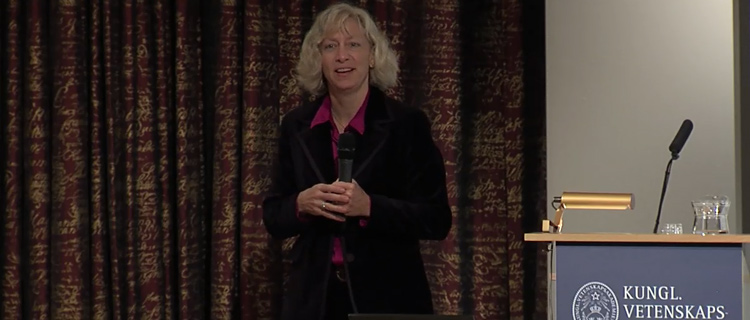
Natural capital
No longer valued at zero
Gretchen Daily on approaches to assessing natural capital
The concept of ecosystem services has become a useful tool in highlighting the value of healthy ecosystems for human well-being.
In a seminar held in honour professor Gretchen Daily, the 2012 winner of the Volvo Environment Prize, Daily presented challenges and research frontiers when moving from theory to real-world application in achieving more sustainable land management practices. What are the potential for replicating and scaling up successful approaches to achieve meaningful impact globally?
Putting a price on nature is controversial among many in the environmental movement. The beauty value of nature, the benefits of living seas, healthy forests and species diversity cannot, say critics, be given a monetary price tag.
"I understand their concern," says Gretchen Daily, "but today the problem is that so much of the ecosystems and the services we get from them are, in principle, valued at zero. We need to work pragmatically to fix this. If we can demonstrate economically the enormous benefits of pollination by insects or natural protections against climate change and floods, then investments in nature will become part of everyday life. We're talking about 21st-century environmental protection."
A pioneer
Gretchen Daily, who is a professor at Stanford University, was awarded the Volvo Environment Prize in 2012 for her pioneering work on quantifying and valuing natural capital. In 2002 she published her book The New Economy of Nature: the Quest to Make Conservation Profitable (written with Katherine Ellison).
In 2006 she and others founded the Natural Capital Project, where Stanford University, together with the Worldwide Fund for Nature and The Nature Conservancy, develops methods for measuring the economic value of ecosystem services.
Seminar facts
The seminar took place 21 November 2012 and included presentations from Dr. Åsa Gren (The Beijer Institute of Ecological Economics), Dr. Thomas Hahn (Stockholm Resilience Centre) Prof. Garry Peterson (Stockholm Resilience Centre) and Dr. Maria Tengö (Stockholm Resilience Centre).
The seminar was organised by The Beijer Institute of Ecological Economics, The Royal Swedish Academy of Sciences, Stockholm Resilience Centre and the Volvo Environment Prize






